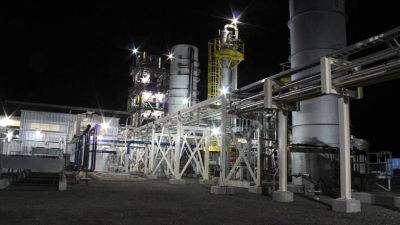As we strive towards a future where net-zero emission becomes a reality, the need for clean. sustainable fuels has become more important than ever before. There’s been some progress along those lines as a group of researchers from the University of Cambridge have developed a solar-powered reactor that converts captured CO and plastic wastes into sustainable fuel and other useful chemical products.
In the tests that were conducted, CO was converted into syngas, which is a key component for sustainable liquid fuels. Plastic wastes, meanwhile, were converted into glycolic acid, which is widely used in the cosmetics industry. The results were reported in the journal Joule in June
Inspired by photosynthesis
This research group has been working towards developing sustainable, net-zero carbon fuels for several years. Their technology was inspired by photosynthesis, which is the process employed by plants to convert sunlight to food. Most of their solar-driven tests using artificial leaves until now, however, used pure, concentrated
CO2 from a cylinder. For this research, the team took CO2 from real-world sources such as industrial exhaust or even the air itself. By capturing and concentrating the CO2, they were then able to convert it into sustainable fuel.
Carbon capture and utilisation
For this, they were inspired by the carbon capture and storage (CCS) popular in the fossil fuels industry wherein CO2 is captured and then pumped underground and stored. But rather than storing it with unknown long-term implications, this group focussed on carbon capture and utilisation.
By bubbling air through the system with an alkaline solution, they were able to selectively trap the CO2. Other gases like nitrogen and oxygen, meanwhile, bubbled out harmlessly. The bubbling process thus made the air or the exhaust easier to work with, as CO2 could be concentrated.
The integrated system allowed the researchers to convert CO2 and plastics into fuels and chemicals using just the power of the sun. While improvements are definitely needed for this technology to be used at scale, the positive results are a step towards producing clean, sustainable fuels to power the world.
As we strive towards a future where net-zero emission becomes a reality, the need for clean. sustainable fuels has become more important than ever before. There’s been some progress along those lines as a group of researchers from the University of Cambridge have developed a solar-powered reactor that converts captured CO and plastic wastes into sustainable fuel and other useful chemical products.
In the tests that were conducted, CO was converted into syngas, which is a key component for sustainable liquid fuels. Plastic wastes, meanwhile, were converted into glycolic acid, which is widely used in the cosmetics industry. The results were reported in the journal Joule in June.
Picture Credit : Google


